Gate.io and Gate Ventures announced on Tuesday that they have allocated investment in the Crossover Markets Group seed round. According to a press release shared exclusively with Finance Magnates, the firms believe that Crossover Markets Group is addressing the technology gaps necessary to aid in widespread institutional adoption.
Crossover Markets Group is an advanced digital asset marketplace for institutional investors. The firm was co-founded by Brandon Mulvihill, Anthony Mazzarese and Vlad Rysin, three industry veterans with extensive backgrounds in FX, equities Equities Equities can be characterized as stocks or shares in a company that investors can buy or sell. When you buy a stock, you are in essence buying an equity, becoming a partial owner of shares in a specific company or fund.However, equities do not pay a fixed interest rate, and as such are not considered guaranteed income. As such, equity markets are often associated with risk.When a company issues bonds, it’s taking loans from buyers. When a company offers shares, on the other hand, it’s selling partial ownership in the company.There are many reasons for individuals investing in equities. In the United States for example, equity markets are amongst the largest in terms of transactions, investors, and turnover.Why Invest in Equities?Overall, the appeal of equities the potential for high returns. Most portfolios feature some portion of equity exposure for growth.In terms of investing, younger individuals can afford to take on higher levels of equity exposure, i.e. risk. Consequently, these people have more stocks in their portfolio because of their potential for returns over time. However, as you are planning to retire, equity exposure becomes more of a risk.This why many investors or holders of retirement accounts transition at least part of their investments from stocks to bonds or fixed-income as they get older.Equity holders can also benefit through dividends, which differ notably from capital gains or price differences in stocks you have purchased.Dividends reflect periodic payments made from a company to its shareholders. They’re taxed like long-term capital gains, which vary by country. Equities can be characterized as stocks or shares in a company that investors can buy or sell. When you buy a stock, you are in essence buying an equity, becoming a partial owner of shares in a specific company or fund.However, equities do not pay a fixed interest rate, and as such are not considered guaranteed income. As such, equity markets are often associated with risk.When a company issues bonds, it’s taking loans from buyers. When a company offers shares, on the other hand, it’s selling partial ownership in the company.There are many reasons for individuals investing in equities. In the United States for example, equity markets are amongst the largest in terms of transactions, investors, and turnover.Why Invest in Equities?Overall, the appeal of equities the potential for high returns. Most portfolios feature some portion of equity exposure for growth.In terms of investing, younger individuals can afford to take on higher levels of equity exposure, i.e. risk. Consequently, these people have more stocks in their portfolio because of their potential for returns over time. However, as you are planning to retire, equity exposure becomes more of a risk.This why many investors or holders of retirement accounts transition at least part of their investments from stocks to bonds or fixed-income as they get older.Equity holders can also benefit through dividends, which differ notably from capital gains or price differences in stocks you have purchased.Dividends reflect periodic payments made from a company to its shareholders. They’re taxed like long-term capital gains, which vary by country. Read this Term, prime brokerage, trading, technology and artificial intelligence.
Mulvihill was the Managing Director and Global Head of FX Prime Brokerage for around five years. Between 2005 and 2017, he was an Executive Board Member and the Managing Director at FXCM. He earned a Bachelor of Arts in Economics from the University of California, Davis.
Crossover Markets Launch
Crossover Markets will officially launch later this year to global institutional clients. In disclosed, semi-disclosed and anonymous environments, Crossover’s technology provides personalized interactions between maker and taker. Using Crossover Markets’ Smart Order Router and connectivity Connectivity Connectivity is defined as a term used for connecting devices to each other. In most cases, this refers to computer networking and more specifically includes bridges, routers, switches, gateways, and service as well as local networks. Connectivity can refer to simple forms, such as connecting a home or office to the internet or even connecting a digital camera to a computer or printer. Connectivity in FinanceConnectivity has taken on new meaning with the growth of fintech and Big Data collection. Today, financial institutions are often completely dependent on technology and data. This is more important than ever to improve, make transfers, lend, invest, and receive payments. Digital and mobile banking services also increase the level of customer convenience and accessibility. Blockchain assists with transactions, artificial intelligence helps with making smart investments, and multifactor authentication protects sensitive financial data. A blockchain is a form of connectivity, while connectivity is key to fintech disruption. Financial businesses need lightning-fast, low-latency, and secure networks to meet the challenges of fintech. A well-designed fiber-optic network offers exceptional connectivity. The superior connectivity provided by an enterprise-level fiber-optic network improves customer satisfaction, bolsters a financial organization’s reputation, and enables digital transformation through fintech. Today, connectivity providers are adapting financial markets by accelerating speedy networks such as 5G and alternatives. Connectivity also bridges brokers with liquidity providers to get fast trade execution. In this scenario, brokers can source liquidity from a single or multiple source, thereby delivering to their clients enough market depth for their orders to get filled. The main characteristic of liquidity is its depth, which will determine how quickly and how big of an order can be executed via the trading platform. Connectivity is defined as a term used for connecting devices to each other. In most cases, this refers to computer networking and more specifically includes bridges, routers, switches, gateways, and service as well as local networks. Connectivity can refer to simple forms, such as connecting a home or office to the internet or even connecting a digital camera to a computer or printer. Connectivity in FinanceConnectivity has taken on new meaning with the growth of fintech and Big Data collection. Today, financial institutions are often completely dependent on technology and data. This is more important than ever to improve, make transfers, lend, invest, and receive payments. Digital and mobile banking services also increase the level of customer convenience and accessibility. Blockchain assists with transactions, artificial intelligence helps with making smart investments, and multifactor authentication protects sensitive financial data. A blockchain is a form of connectivity, while connectivity is key to fintech disruption. Financial businesses need lightning-fast, low-latency, and secure networks to meet the challenges of fintech. A well-designed fiber-optic network offers exceptional connectivity. The superior connectivity provided by an enterprise-level fiber-optic network improves customer satisfaction, bolsters a financial organization’s reputation, and enables digital transformation through fintech. Today, connectivity providers are adapting financial markets by accelerating speedy networks such as 5G and alternatives. Connectivity also bridges brokers with liquidity providers to get fast trade execution. In this scenario, brokers can source liquidity from a single or multiple source, thereby delivering to their clients enough market depth for their orders to get filled. The main characteristic of liquidity is its depth, which will determine how quickly and how big of an order can be executed via the trading platform. Read this Term channels, Makers and Takers can interact through private rooms.
“Having Gate’s support is a testament to our fundamental belief that institutional clients require trading technology that can improve liquidity, not limit it. With the current volatility, it is more important now than ever that our marketplace connects institutional participants through customizable trading interactions to unlock siloed liquidity. This is a big milestone toward our official launch later this year,” Anthony Mazzarese, the Chief Commercial Officer at Crossover Markets, told Finance Magnates.
Moreover, Brandon Mulvihill, the CEO and Co-Founder of Crossover Markets, commented: “We are thrilled to have Gate.io participate in our seed round as we aim to accelerate institutional adoption of digital assets through ultra-low latency trading technology. Gate is a long-standing industry leader, notably having amassed a significant retail consumer base. As an industry expert, Gate’s partnership with Crossover reinforces our thesis that institutional-specific technology is required to unlock liquidity and pave the roadway for institutional demand. Crossover is quite thankful to onboard a strategic investor, and we welcome the amazing team at Gate Ventures & Gate.io. to the Crossover Markets Group.”
Gate.io and Gate Ventures announced on Tuesday that they have allocated investment in the Crossover Markets Group seed round. According to a press release shared exclusively with Finance Magnates, the firms believe that Crossover Markets Group is addressing the technology gaps necessary to aid in widespread institutional adoption.
Crossover Markets Group is an advanced digital asset marketplace for institutional investors. The firm was co-founded by Brandon Mulvihill, Anthony Mazzarese and Vlad Rysin, three industry veterans with extensive backgrounds in FX, equities Equities Equities can be characterized as stocks or shares in a company that investors can buy or sell. When you buy a stock, you are in essence buying an equity, becoming a partial owner of shares in a specific company or fund.However, equities do not pay a fixed interest rate, and as such are not considered guaranteed income. As such, equity markets are often associated with risk.When a company issues bonds, it’s taking loans from buyers. When a company offers shares, on the other hand, it’s selling partial ownership in the company.There are many reasons for individuals investing in equities. In the United States for example, equity markets are amongst the largest in terms of transactions, investors, and turnover.Why Invest in Equities?Overall, the appeal of equities the potential for high returns. Most portfolios feature some portion of equity exposure for growth.In terms of investing, younger individuals can afford to take on higher levels of equity exposure, i.e. risk. Consequently, these people have more stocks in their portfolio because of their potential for returns over time. However, as you are planning to retire, equity exposure becomes more of a risk.This why many investors or holders of retirement accounts transition at least part of their investments from stocks to bonds or fixed-income as they get older.Equity holders can also benefit through dividends, which differ notably from capital gains or price differences in stocks you have purchased.Dividends reflect periodic payments made from a company to its shareholders. They’re taxed like long-term capital gains, which vary by country. Equities can be characterized as stocks or shares in a company that investors can buy or sell. When you buy a stock, you are in essence buying an equity, becoming a partial owner of shares in a specific company or fund.However, equities do not pay a fixed interest rate, and as such are not considered guaranteed income. As such, equity markets are often associated with risk.When a company issues bonds, it’s taking loans from buyers. When a company offers shares, on the other hand, it’s selling partial ownership in the company.There are many reasons for individuals investing in equities. In the United States for example, equity markets are amongst the largest in terms of transactions, investors, and turnover.Why Invest in Equities?Overall, the appeal of equities the potential for high returns. Most portfolios feature some portion of equity exposure for growth.In terms of investing, younger individuals can afford to take on higher levels of equity exposure, i.e. risk. Consequently, these people have more stocks in their portfolio because of their potential for returns over time. However, as you are planning to retire, equity exposure becomes more of a risk.This why many investors or holders of retirement accounts transition at least part of their investments from stocks to bonds or fixed-income as they get older.Equity holders can also benefit through dividends, which differ notably from capital gains or price differences in stocks you have purchased.Dividends reflect periodic payments made from a company to its shareholders. They’re taxed like long-term capital gains, which vary by country. Read this Term, prime brokerage, trading, technology and artificial intelligence.
Mulvihill was the Managing Director and Global Head of FX Prime Brokerage for around five years. Between 2005 and 2017, he was an Executive Board Member and the Managing Director at FXCM. He earned a Bachelor of Arts in Economics from the University of California, Davis.
Crossover Markets Launch
Crossover Markets will officially launch later this year to global institutional clients. In disclosed, semi-disclosed and anonymous environments, Crossover’s technology provides personalized interactions between maker and taker. Using Crossover Markets’ Smart Order Router and connectivity Connectivity Connectivity is defined as a term used for connecting devices to each other. In most cases, this refers to computer networking and more specifically includes bridges, routers, switches, gateways, and service as well as local networks. Connectivity can refer to simple forms, such as connecting a home or office to the internet or even connecting a digital camera to a computer or printer. Connectivity in FinanceConnectivity has taken on new meaning with the growth of fintech and Big Data collection. Today, financial institutions are often completely dependent on technology and data. This is more important than ever to improve, make transfers, lend, invest, and receive payments. Digital and mobile banking services also increase the level of customer convenience and accessibility. Blockchain assists with transactions, artificial intelligence helps with making smart investments, and multifactor authentication protects sensitive financial data. A blockchain is a form of connectivity, while connectivity is key to fintech disruption. Financial businesses need lightning-fast, low-latency, and secure networks to meet the challenges of fintech. A well-designed fiber-optic network offers exceptional connectivity. The superior connectivity provided by an enterprise-level fiber-optic network improves customer satisfaction, bolsters a financial organization’s reputation, and enables digital transformation through fintech. Today, connectivity providers are adapting financial markets by accelerating speedy networks such as 5G and alternatives. Connectivity also bridges brokers with liquidity providers to get fast trade execution. In this scenario, brokers can source liquidity from a single or multiple source, thereby delivering to their clients enough market depth for their orders to get filled. The main characteristic of liquidity is its depth, which will determine how quickly and how big of an order can be executed via the trading platform. Connectivity is defined as a term used for connecting devices to each other. In most cases, this refers to computer networking and more specifically includes bridges, routers, switches, gateways, and service as well as local networks. Connectivity can refer to simple forms, such as connecting a home or office to the internet or even connecting a digital camera to a computer or printer. Connectivity in FinanceConnectivity has taken on new meaning with the growth of fintech and Big Data collection. Today, financial institutions are often completely dependent on technology and data. This is more important than ever to improve, make transfers, lend, invest, and receive payments. Digital and mobile banking services also increase the level of customer convenience and accessibility. Blockchain assists with transactions, artificial intelligence helps with making smart investments, and multifactor authentication protects sensitive financial data. A blockchain is a form of connectivity, while connectivity is key to fintech disruption. Financial businesses need lightning-fast, low-latency, and secure networks to meet the challenges of fintech. A well-designed fiber-optic network offers exceptional connectivity. The superior connectivity provided by an enterprise-level fiber-optic network improves customer satisfaction, bolsters a financial organization’s reputation, and enables digital transformation through fintech. Today, connectivity providers are adapting financial markets by accelerating speedy networks such as 5G and alternatives. Connectivity also bridges brokers with liquidity providers to get fast trade execution. In this scenario, brokers can source liquidity from a single or multiple source, thereby delivering to their clients enough market depth for their orders to get filled. The main characteristic of liquidity is its depth, which will determine how quickly and how big of an order can be executed via the trading platform. Read this Term channels, Makers and Takers can interact through private rooms.
“Having Gate’s support is a testament to our fundamental belief that institutional clients require trading technology that can improve liquidity, not limit it. With the current volatility, it is more important now than ever that our marketplace connects institutional participants through customizable trading interactions to unlock siloed liquidity. This is a big milestone toward our official launch later this year,” Anthony Mazzarese, the Chief Commercial Officer at Crossover Markets, told Finance Magnates.
Moreover, Brandon Mulvihill, the CEO and Co-Founder of Crossover Markets, commented: “We are thrilled to have Gate.io participate in our seed round as we aim to accelerate institutional adoption of digital assets through ultra-low latency trading technology. Gate is a long-standing industry leader, notably having amassed a significant retail consumer base. As an industry expert, Gate’s partnership with Crossover reinforces our thesis that institutional-specific technology is required to unlock liquidity and pave the roadway for institutional demand. Crossover is quite thankful to onboard a strategic investor, and we welcome the amazing team at Gate Ventures & Gate.io. to the Crossover Markets Group.”

You can get bonuses upto $100 FREE BONUS when you:
💰 Install these recommended apps:
💲 SocialGood - 100% Crypto Back on Everyday Shopping
💲 xPortal - The DeFi For The Next Billion
💲 CryptoTab Browser - Lightweight, fast, and ready to mine!
💰 Register on these recommended exchanges:
🟡 Binance🟡 Bitfinex🟡 Bitmart🟡 Bittrex🟡 Bitget
🟡 CoinEx🟡 Crypto.com🟡 Gate.io🟡 Huobi🟡 Kucoin.






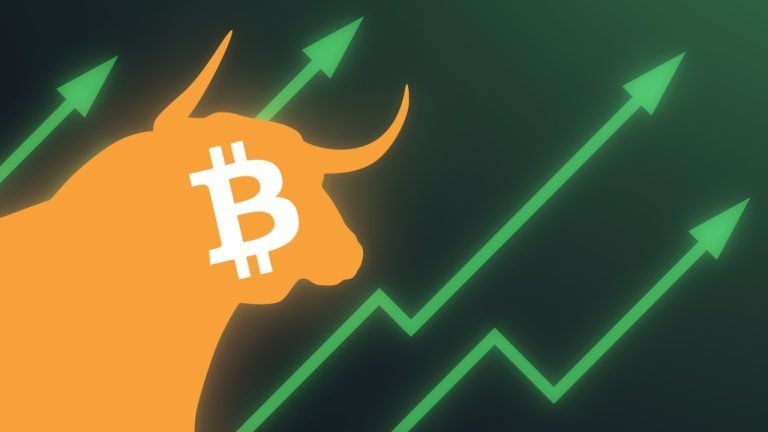
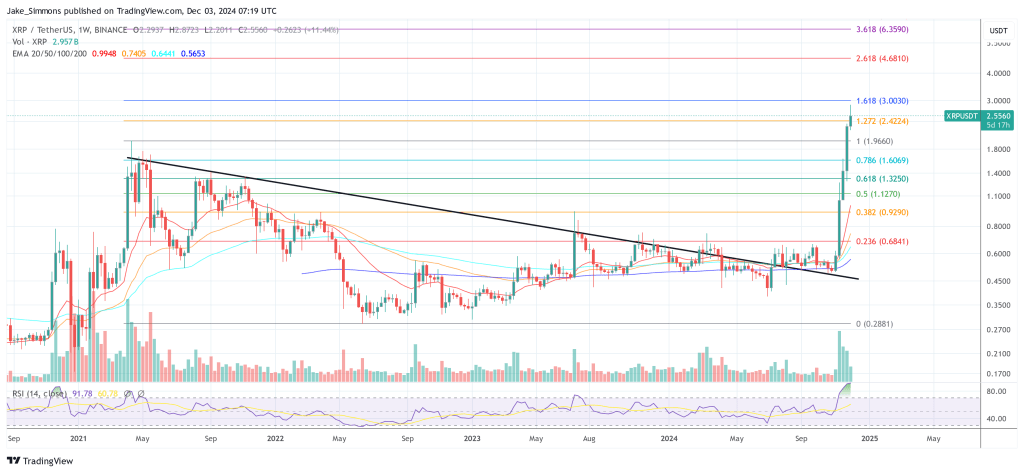





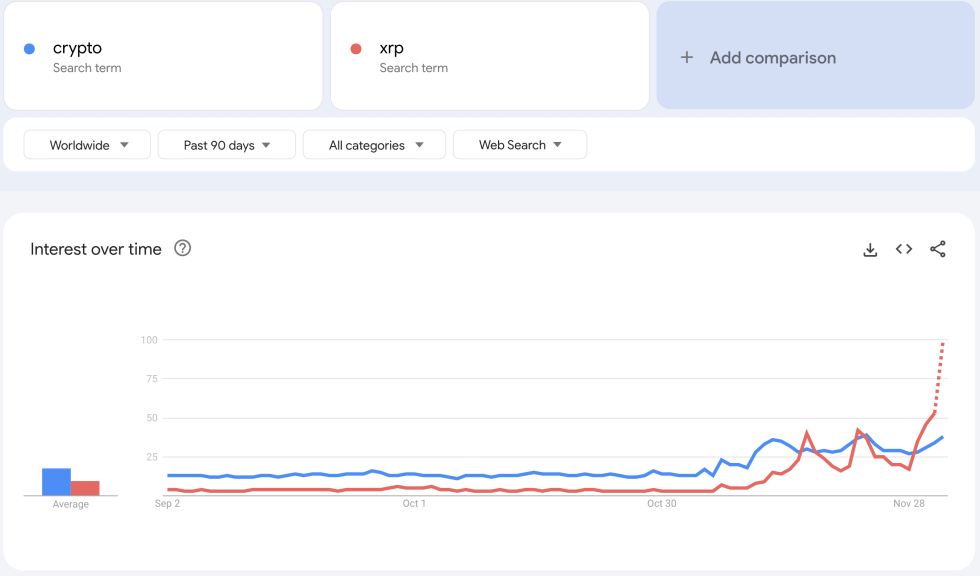



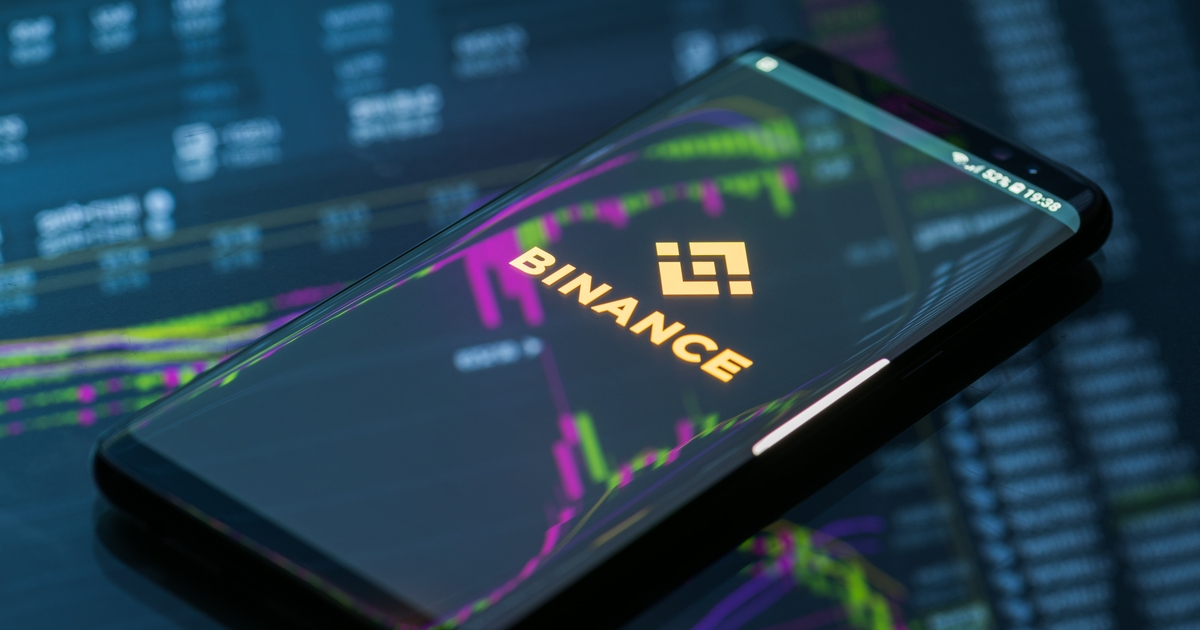
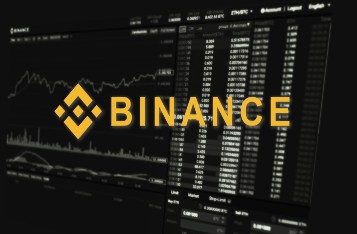


Comments